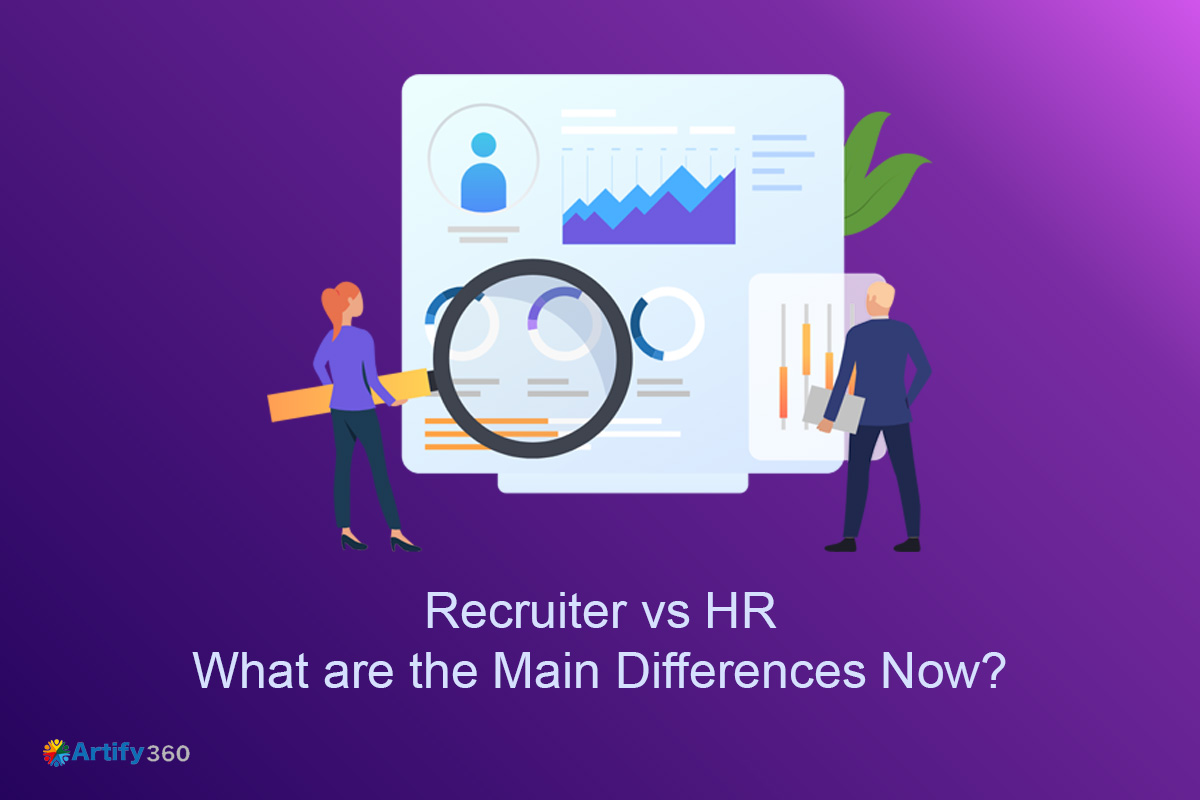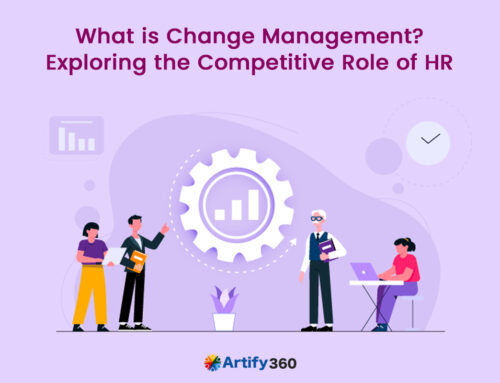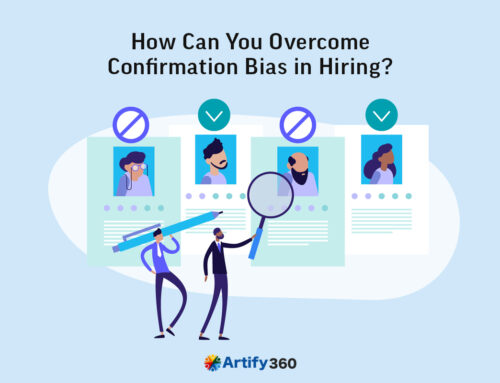Operations management in an organization plays a crucial part in the development of your business activities. It is useful for building an empowering environment that promotes efficiency and productivity. Of all the operational activities, an important segment is the HR operations in your organization.
When you manage an end-to-end HR operations model, the primary goal is to deliver an inclusive platform with optimum support. However, your work does not stop there. Conscious and active upgrades should be available for your HR domain that gets consistent application.
The scope and potential of HR activities in the business operations category are numerous. If you can promote an engaging HR operations section with maximum support for your HRMS platform activities, it is a boon for your business tasks.
This post is all about finding the major differences between two of the most important factors in an operations model – recruitment and HR (Human Resource) management. The article explores recruiter vs HR in a light that is distinct from the regular comparison studies.
Hop in to discover the key responsibilities of both domains and the differences between them. You can learn more about the impact and edge of the functions using details from this space. It serves as a piece that gives information about the essential need for adopting recruitment and HR operations in your organization.
Recruiter vs HR: What’s the Difference Between Them?
The premise of comparing and contrasting recruiter vs HR profiles is no easy task. Many activities may be interconnected within the systematic features in this domain. If you can connect this with the active route of an organization in channeling its unique business activities, it might add significant value to the whole business model.
The major differences between recruiter and HR functions can be represented with the list of factors given below:
Scope and Potential
The scope and future potential of HR management are at an excellent level. As for recruiters, the broader scope is limited to them, but they can optimize the talent acquisition process. Your HR operations process needs a lift according to the management necessities in an organization.
Focus Areas
The focus segments of an HR process cover all the operations activities and their related modules. The onus is on supporting employee engagement, performance management, business development, and HR efficiency. As for your recruiters, their primary focus is on developing an integrated hiring strategy for the business model.
Use of Tools
HR professionals will use a wide range and variety of tools and platform integrations to promote the core operations process in an organization. Recruiters will stick to the tools that cater to their unique purpose of optimum hiring techniques.
Promotion skills
An HR professional should be capable of raising the bar on various operations management processes in a firm. It covers pioneering action in the promotion and development category. HR personnel ensures this effectively, unlike the general recruiters who stay concentrated on their line of work.
Key Metrics and Parameters
The key metrics and parameters in an HR operations process are of crucial value in a modern organizational setting. It reflects much better in the context of a company’s process flow compared to the basic recruitment profiles and recruiting HR activities. Similarly, a KPI to consider is the average salary. As per statistics, HR professionals receive nearly 40% higher wages than the recruiters.
Sustainable Practices
Sustainability is important in the exclusive management of an HR process. Though recruiters also opt for this function, the main difference is that HR professionals embrace the concepts of sustainability, inclusion, and diversity with a wider possibility of business progress.
Goals and Objectives
Setting up goals is easier for recruiters in an organization. As for the HR personnel, the idea is to boost the various goals and objectives of the company following fixed measures. Recruiters will only seek a basic goal where the promise of effective hiring happens.
Legal Factors and Compliance
Every HR process includes a set of corresponding compliance norms and regulatory measures. However, the tasks will be harder for HR professionals owing to the bigger list of legal compliances to follow. Recruiters can just focus on legal terms related to the hiring of resources in an organization.
Alignment with the Work Environment
If you can align well with the work environment, it will be mutually beneficial for you and the organization. HR professionals get a better chance at this feature because of their active involvement in the numerous operations functions of a business model.
Collaboration Opportunities
The chances for collaboration are higher in an HR management model. Recruiters will need an active collaboration network and management process with the potential candidates. When you are an HR professional, the kind of collaboration required is of the highest priority and order from an organizational perspective.
Recruiter vs HR: The Need for Comparison
You might be wondering whether a comparison that pits HR vs recruiter is necessary. The distinction between these two gives vital information regarding the performance requirements of both niches. However, the benefits do not end there. You need an active channel to monitor and build the HR activities governing these features.
The proper comparison between recruitment and HR profiles is available in an active digital transformation and automation platform. You can also choose an active HR management system that provides optimum updates to the features at recurring intervals.
The optimum need to compare these two lies in the fact the job profiles and application portals should have a clear and visible description. Resources and personnel in these profiles should have a thorough understanding of the existing models and their activities.
With the right knowledge and information regarding the HR operations processes, you can create a space where recruiters can strive for talent acquisition management at optimum levels. The same principle applies to HR professionals who can focus on all their operations management functions.
Recruitment and Its Key Responsibilities
What is recruiting from a functional perspective? Some of the key responsibilities and duties of recruiters in an organization can be listed as follows:
Candidate Assessment
Assessing the profiles of potential candidates with the job profiles is the primary task of recruiters in an organization. It helps you build an inaugural supportive environment for your incoming resources.
Prolific Talent Acquisition
You can actively manage and support the core talent acquisition and management process with a dedicated recruitment manager or channel. It is useful for building an apt hiring model.
Resume Screening
Screening of resumes is an important task to build your opportunity to find the right candidate from an authentic and engaging recruiter perspective. This duty is feasibly managed with the support of an automated screening process.
Communication and Evaluation
You can conduct effective sessions and workshops to create an engaging process of evaluation for your resources. It helps you with a route for improving the communication between hiring personnel and potential employees.
Application Management
The genuine role of neatly managing the inflow of applications cannot be understated in an organizational setting. It is relevant from the viewpoint of companies to sort out the required profiles.
Formal Hiring Procedures
The hiring and recruitment principles should be active in an essential HRMS platform. Recruiters are capable of creating a formal model that works following the quality management of an encouraging HR management process.
Coordination and Negotiation
The primary purpose of recruiters involves a special channel delivery to coordinate and negotiate the core activities in an organization’s operations management system related to the hiring process.
Onboarding Assistance
Recruiters can assist in their onboarding functions to facilitate HR functions regarding the employee management process.
HR and the Core Defining Parameters
The modules that HR professionals in an organization promote include some of the fundamental operational management functions. These are:
Recruitment and selection
The basic recruiter feature of hiring and recruitment can be actively managed by HR personnel with the assistance of recruitment functions. You can also select the various resources for the organization with the support of this feature.
Also Read: Recruitment and Selection Process in HR: A Detailed Overview
Onboarding and Employee Training
If you are an HR professional, it is your solemn duty to onboard a fresh employee to the organization. The same applies to the provision of learning and development portals for employee training purposes.
Attendance and Leave Management
When you promote the functions of attendance management and leave recording with an integrated HR process, it is helpful for employees in the system.
Payroll Processing
HR resources in the organization have to promote the features of payroll processing, compensation management, benefits administration, and staff allowance distribution. It offers a crucial impact on your organization’s HR efficiency function.
Time and Cost Management
The possibility of managing your time, cost, and other resources in the organizational context is important. HR implementation at the appropriate levels will help you with this process.
Employee Engagement
It is the responsibility of HR professionals to promote an active engagement process for all the employees and human capital resources in the organization. It includes features such as employee experience, satisfaction, morale, etc.
Also Read: How Cloud HR Software Can Improve Employee Engagement
Rewards, Recognition, and Feedback
The rewards and recognition management of your employees is an important feature task. The same goes for accepting their support in the feedback and review of your resources. HR professionals can facilitate this feature.
Performance and Productivity
Performance management and business productivity in an empowering business context. HR professionals can actively contribute to the delivery of this particular operations feature that boosts organizational tactics.
Recruiter vs HR – Who Has the Edge & Impact?
When it comes to pure business operations and productivity management terms, the role of HR occupies a much broader scope in comparison to the basic recruiter profiles. However, you cannot undermine the role of recruitment and hiring professionals in the context of a shining organization.
Recruiters and their essential services are mandatory for you to fulfill talent acquisition objectives at optimum rates. Similarly, an empowering HR professional is sufficient to work on every resource-related and operational activity of your organization.
All things aside, the profile of an HR professional holds more prestige, value, and impact over other aspects of the organization’s operations process model. In most companies, you can be an HR resource and might cover the recruitment module as part of the general operations tasks.
Detailing the Need for Embracing Recruiters & HR in Organizations
If you are a growing organization with the need for innovative practices and technology operations, it is important to promote an inclusive culture. It means the adoption of both HR recruiting and operations profiles to manage an exclusive management system for the entire organization.
The coexistence of HR professionals and recruiters will ensure a dedicated HR process and a streamlined talent management procedure. When this happens, you can hire excellent resources for the organization and help engage them in the company tasks from the onboarding to the resignation stages.
The importance of recruiters can be cited using an interesting data point published according to the studies. Up to 80% of job vacancies never get a proper advertisement. You can fill this gap with the core support of recruiters. HR professionals are inevitable in an organization’s operations model. It applies to small businesses, mid-level companies, and large-scale enterprises.
The final purpose of covering recruitment and HR functions parallelly in an organization is to offer a perfect employee experience. It should cover employee engagement, performance management, operational efficiency, and business productivity within the defined work culture of the organization’s environment.
Artify 360 & Its Duties in Fulfilling the Recruitment and HR Activities
The features and functions associated with an organization’s operations profile depend heavily on the inception of core competencies in HR management. Whether it be a specific module like recruitment or monitoring of the general HR operations, it is better to adopt an exclusive digital transformation platform or automation model.
Artify 360 is a cloud HR software that fits the bill of HR recruitment and operations management in a one-stop workflow. It creates ample opportunities and space for you to perform at exceptional levels to boost the quality of your operations features.
Among the categories of HR software systems, Artify is a proven operations management product. The resource serves as a testimony to achieving success in the general operations domain with proven and dedicated functions.
If you want more information regarding our HR payroll software portal in the execution of core HR functionalities, including recruitment, feel free to contact the team. You can ask for a demo session and a free trial, if necessary to get a hold on the essential HR management benefits using our system.






